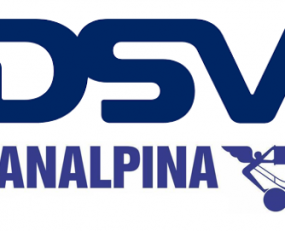
DSV Panalpina announced on 30-April that despite reasonable results for the first quarter of 2020 it felt it necessary to reduce the size of its workforce by around 5%.
The quarterly numbers were complex due to effects of the merger of DSV with Panalpina, a process which the new company now said was complete enough that it “no longer possible to separate organic growth and M&A impact.”
Over the period revenue grew by 36.6% year-on-year, whilst gross profit was up by 30.6%. This large increase reflects the merger of the two companies but also makes it hard to judge the underlying trajectory of sales. A better guide is EBIT (Earnings Before Interest & Tax), which before ‘special items’ increased by just 7.6% year-on-year, to DKK*1.566bn (US$230m) for the quarter. Operating margin fell on a year-on-year basis from 7.3% to 5.7%. It is these profit numbers that imply DSV Panalpina have taken a significant hit from the crisis in the economy.
Taking each division in turn, it is easier to see the problems DSV Panalpina has encountered. The ‘Air & Sea’ forwarding business saw gross profit jump by 59.1% year-on-year to DKK3.875bn ($560m) for Q1. Yet both the conversion ratio and the operating margin were down significantly. However, this appears to be as much driven by the lower margins of Panalpina as the economic crisis. For example, the old DSV’s margin in Q1 2019 was 10.6% whilst in Q2 2020 DSV Panalpina’s was 6.8%. However, the latter number represented an increase from the 6.6% seen in Q4 2019.
The ‘Road’ business was easier to understand, with a revenue down by 2% largely due to problems in March. EBIT fell by 12.8% to DKK259m ($38m) whilst operating margin edged down to 3.3% as compared to 3.7% in Q1 2019. The ‘Solutions’ contract logistics business was similar, with revenue up 12.6% year-on-year, but EBIT shrank by 17.2% to DKK159m. Both ‘Road’ and ‘Solutions’ were particularly affected by the near-halt in production in the automotive sector.
DSV Panalpina is far from being in crisis, yet it has announced a string of measures to what it calls adapting “to lower market activity and global restrictions”. This “rightsizing” focusses on reducing the cost base by DKK1.4bn (US$204m) largely by reducing the workforce by 3,000 people which is equivalent to 5% of the present total. The company will also delay capital projects.
Speaking after the publication of the results, Chief Financial Officer Jens Lund said that he expected that the market would “bottom-out” in April and May although air freight was down 20% and sea freight by 15% in this period.
Despite what are clearly robust results, DSV Panalpina management response seems to be pessimistic. Losing 5% of a company’s workforce suggests little expectation of a rapid recovery, all the more so in a company that was previously growing so rapidly.
*DKK = €0.13/$0.14
Source: Transport Intelligence, 04 May 2020
Author: Thomas Cullen